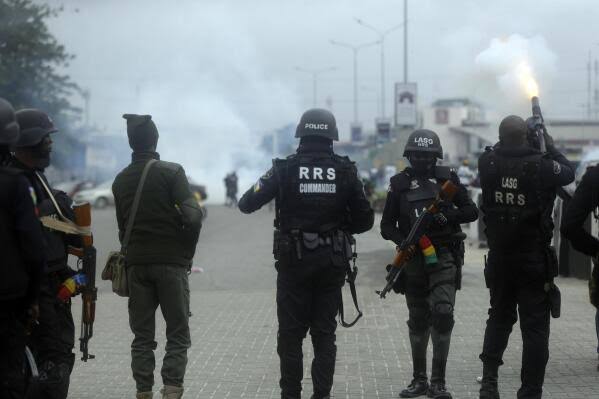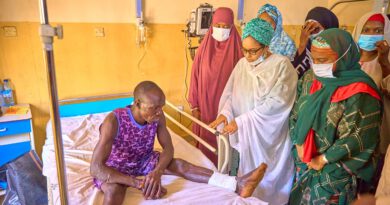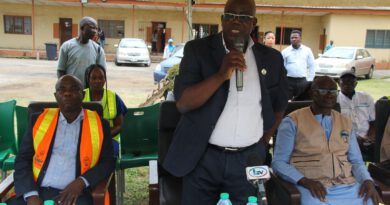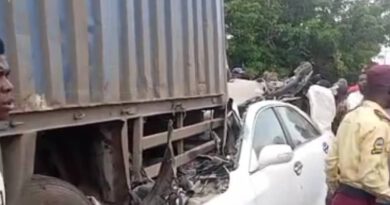Protest is Not the Solution, But Collective Commitments to Change the Narrative
By Taoreed Abdullahi
Since I was born around the mid-80s, this is the first time I have seen people, irrespective of status, ethnicity, or tribe, complaining about hardship in the land. Nigeria, my country, is full of fertile land and opportunities. It feels as if a new nation has just been created in Nigeria. Looking at the situation in the market, things are expensive, and the prices of goods and services are skyrocketing beyond the reach of the masses. Common foods such as yam, beans, garri, cassava flakes, and others are now considered luxury items due to their high prices.
How did we arrive at this? This is why some Nigerians are calling for a change. In response to the hardship, some have taken to social media to call for protests as a way of drawing the attention of relevant authorities to the situation and finding solutions. A lot of information, posters, and hashtags are circulating on social media, calling for protests over the hardship in the land. Many people are sending warnings that protests should be avoided.
Who is afraid of protests? Is the government not aware of the situation? I think, instead of blaming others or tagging some Nigerians as being behind the proposed protest, government officials should focus on solving the problem. Our leaders are doing a lot to address the matter, but it has not yielded the desired results. Our leaders should be asking themselves the following questions: Why do people want to protest? What can they do to address the grievances, both immediately and in the near future? How do they ensure that the protest does not get out of hand? Finding appropriate answers or proposing solutions to these questions would put an end to the issues at hand.
Is protest a crime? No. The 1999 Nigerian Constitution, as amended (Section 40), guarantees the right of citizens to peaceful protest. The courts have also affirmed that right. What should preoccupy the minds of our security agents now is how to provide a secure and conducive environment for citizens to protest peacefully in line with constitutional provisions and the African Charter on Human Rights.
Governments at all levels should continue to engage and do everything possible to ease the hardship. The Federal Government has demonstrated leadership by distributing tons of rice to the states for onward distribution to people at the grassroots. It’s a great move in the right direction, but some experts think that such efforts may not solve the problem. They have recommended establishing special markets where people can buy food items at a cheaper rate instead of channeling such efforts through the State Government for distribution.
To many Nigerians, the experience of the #EndSARS protest is the reason for calling for caution and appealing to the youths to sheathe their swords. The damage done to government investments, infrastructure, and property, and the destruction of monuments come to mind when a protest of such a nature is proposed, especially by the youths who usually lack coordination. Some fear that bad elements might hijack the protest, jeopardizing government property and innocent businesses. Yes, it’s true, but we need to call for calm and urge our government to do the needful, as the hardship is affecting our people. Everyone has the right to protest, and it must be done in line with the constitution of the land.
The protests should not be something for the present administration to fear. We were witnesses to the protests held in 2012 when Dr. Goodluck Ebele Jonathan was president. Why protest then? On January 1, 2012, President Goodluck Jonathan announced the removal of the fuel subsidy, adjusting the pump price of petrol from N65 per litre to N141, which sparked mass protests known as ‘Occupy Nigeria’ across major cities of the country.
The protests forced the government to adjust the price of petroleum products to N97 after more than a week of protests. It was further reduced to N87 in 2015. Dr. Jonathan faced serious backlash from the adjustment in fuel prices, especially from leaders of the defunct Action Congress of Nigeria, who are now mostly in the All Progressives Congress (APC).
As for me, youths, if you’re going to join any protest, you need to think of engaging the government in productive dialogue aimed at positive development. I feel our pains; we need to calm down and continue to use all available mediums to communicate our needs to the government. Many of us have graduated and are staying in our parents’ houses without tangible jobs; some of us have acquired skills with working tools but no reasonable work to support our families. Protests are good, but we need to get organized. A lot of people are out there to destroy our common heritage, and we need to prevent them in our planning to let the government hear our grievances. Let us educate our colleagues to maintain orderliness and coordinate one another in a manner that prevents intruders from achieving their goals of destroying our nation.
For the government, the time is now to do what is right for Nigerians. An idle hand is the devil’s workshop; let there be employment opportunities for the youths. It’s important to create avenues for them to explore their talents in taking our country to greater heights. It’s important to create more jobs and opportunities. Our youths deserve attention, knowing fully well that they are our future. As we provide a conducive environment for learning and acquiring knowledge, we must create spaces for them in both public and private sectors to explore. This will also reduce the cases of the “japa” syndrome among the youths seeking greener pastures abroad.




